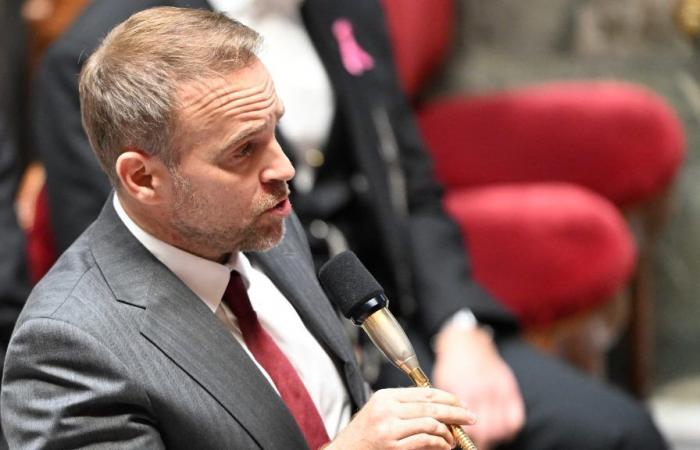The minister of Industry went this Monday to the Saint-Avold power station a few days after the voting of the Parliament which approved the site conversion plan.
An “exemplary” project, which will save 500 jobs: the Minister of Industry Marc Ferracci welcomed this Monday in Saint-Avold (Moselle) of the next conversion to gas from the Emile Huchet coal-fired power station, under a law ratified in the National Assembly last week.
“I think we have a fairly exemplary project here for the need to support the energy transition with pragmatism,” said the minister on the site, surrounded by local employees and elected officials.
President Emmanuel Macron had announced in 2023 conversion to biomass, by 2027, of the last two coal-fired power plants, that of Saint-Avold and that of Cordemais (Loire-Atlantique).
EDF announced in September the dry closure of Cordemais, but the text approved by the deputies finally provides for a “conversion plan” of this installation. As for the Saint-Avold power station, for lack of conversion, it should have closed in 2027, jeopardizing 500 direct and induced jobs.
“Everyone went in the same direction,” continued Marc Ferracci, “to keep the jobs” of the site and even beyond with “a whole platform [qui] conceals a very important potential for our industrial sovereignty “, with in particular another project, of hydrogen production.
“Important step”
Welcoming an “important step”, the Gazelenergie group, which manages the power station, welcomed that Parliament has given “a clear course, (…) expected for many years”, to its conversion. This represents an investment of a hundred million euros for Gazelenergie, “for public finances”.
“Flexibility is one of the key issues of the next decade” for the French and European electricity supply, and Émile Huchet “has its role to play” in this context, said the president of Gazelenergie, Frédéric Faroche.
The employees interviewed by AFP also expressed their relief. “Everyone breathes a little more,” observes Ludovic Guyot, an employee for a year at the power station.
The new law offers a “puff of oxygen, because we have prospects now”, he rejoices. However, there are stages to be taken, warns Sylvain Krebs, CFE-CGE union representative at the power station. The European Commission must in particular validate the integration of Saint -Avold into the mechanism aimed at securing the electrical supply – especially in winter, when the power station is converted. In France, an implementation decree of the recent law as well as administrative authorizations will also be necessary before seeing the project materialize.
“progress” on CO2
Employee employment contracts were initially ended in the spring. They had been extended until August 31, and this vote will keep them beyond this date. Local elected officials, as well as deputies and senators, of all political stripes, also worked on a competition, as well as the state which “played its role” by accompanying this process, according to the minister.
Having a “good news for local employment” and the East Moselle, a territory marked by deindustrialisation, the RN deputy of the Moselle Alexandre Loubet thus estimated on X Tuesday that the law “did justice to the employees of the site”, after three years of “fierce mobilization”. Former rebellious deputy Charlotte Leduc had praised an “important victory”.
In the Assembly, environmentalists have however abstained, stressing that voting for a project which continues to use fossil fuels was “not an easy exercise”. Such criticisms, according to which “we do not completely get out of fossil fuels”, must be taken with “a lot of distance”, commented Marc Ferracci on Monday, because “today we have a project that makes progress in CO2 emissions”. During the campaign for the European elections of 2024, several political figures, such as the heads of the Jordan Bardella (RN) and François-Xavier Bellamy (LR), or Marine Tondelier, National Secretary of EELV, had made the trip to the site.








